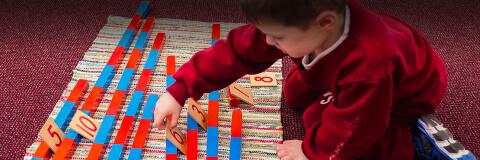

FAQ'S
- Home
- Admissions
FREQUENTLY ASKED QUESTIONS – FAQ'S
These FAQ's are designed to provide a better understanding of Unionville College. They provide basic information, sometimes about fairly complex topics, and will often link to more detailed information. If you have further questions feel free to contact us!
UC is one of the best among all private and independent schools in Canada. A Montessori environment encourages children to acquire the skills necessary for practical life by providing opportunities for children to take care of and develop respect for themselves and their environment; by helping them to refine their motor skills; by encouraging independence; and by valuing the acquisition of grace and courtesy. Children’s senses are awakened to help them conceptualize ideas such as shape, size, colour, and weight. Language lessons, including phonetic reading and writing, are encouraged, while verbal and written self-expression are emboldened. Stories and simple experiments are used to introduce children to history, culture, geography, and science. Study of Mathematics is a hands-on process that leads children from concrete understanding to abstract learning. Sensorial and visual impressions of numbers (1 to 1000) help the children move beyond arithmetic into algebra and geometry. In addition to providing a full Montessori Casa programme, UC also offers learning experiences in French, computers, physical education, gymnastics, music, and visual arts. We also ensure that our youngest students have full access to our casa library.
Montessori classrooms consist of mixed age groups of students called family groupings. This allows for peer teaching, broad social interaction, and inclusion of individual differences in learning styles and pace. It also creates a social community of families. Younger students benefit from the older role models; they are encouraged to work hard as they aspire to use more advanced materials and do all the things that the older children are doing. They also learn to treat others with respect and kindness, as the older students have done to them. Older students also gain confidence and validation when they guide younger children through an activity.
If you would like to read more about Dr. Maria Montessori and her method of education, the following resources are available in our school library or through the Markham Public Library System: “Montessori Today: A Comprehensive Approach to Education from Birth to Adulthood” by Paula Polk Lillard, published by Schocken Books (New York) 1996. If you would like to learn more about Maria Montessori herself: “Maria Montessori: Her Life and Work”, by E.M. Standing, published by Penguin Group (New York) 1998.
Apart from the school fee, there is no other significant expense. Before-school care (from 7:00 a.m.) and after-school care (until 6:00 p.m.) are included in the fee. There is an additional cost to purchase the uniform, and some extra charges may apply to field trips, musical instruments, and extra-curricular programmes.
Both of our Casa and elementary buildings have an extensive range of facilities for academic studies, athletics, and extracurricular activities:
- Bright, spacious classrooms
- Automated library resource centre
- Mac computer lab: networked and on-line
- Gymnasium: volleyball, basketball, floor hockey, badminton, etc.
- A new state-of-the-art auditorium
- Modern science lab
- Art Studio
- Dance Studio
- Music Room
Edsby is a learning management system used in Casa to Grade 8 at UC. Edsby permits students to access important school information anywhere at any time. It also permits teachers to post lesson content, homework questions, and solutions for students. Edsby also has the following useful features: assignment submission, discussion forum, file downloads, grading and testing, messaging, online calendar, news, and announcements. Edsby is accessed via the web. Even when absent, students can access important content and stay connected.
The Smartboard is an interactive whiteboard that students and teachers can use to enrich learning in the classroom. Smartboards are available in all classrooms for grades 1-8. This technology engages visual and aural learners and helps facilitate whole-class instruction and active learning. Students can use the Smartboard and iPad to collaborate with each other, investigate new ideas, and create projects that demonstrate their learning.
Students in grades 1 through 8 are able to access academic assistance in many subject areas. The key focus areas are: mathematics, written language and reading skills. Students receive direct instruction in small groups or 1:1 teaching by certified teachers. This assistance usually occurs during the school day and generally lasts as long as the learning needs are present.
In compliance with the Accessibility for Ontarians with Disabilities Act, 2005 (AODA), written information and other forms of communication will be made accessible, upon request. The accessible information can include the following: Emergency and public safety information, feedback processes for employees and the public, employee information, for staff and all other public information.